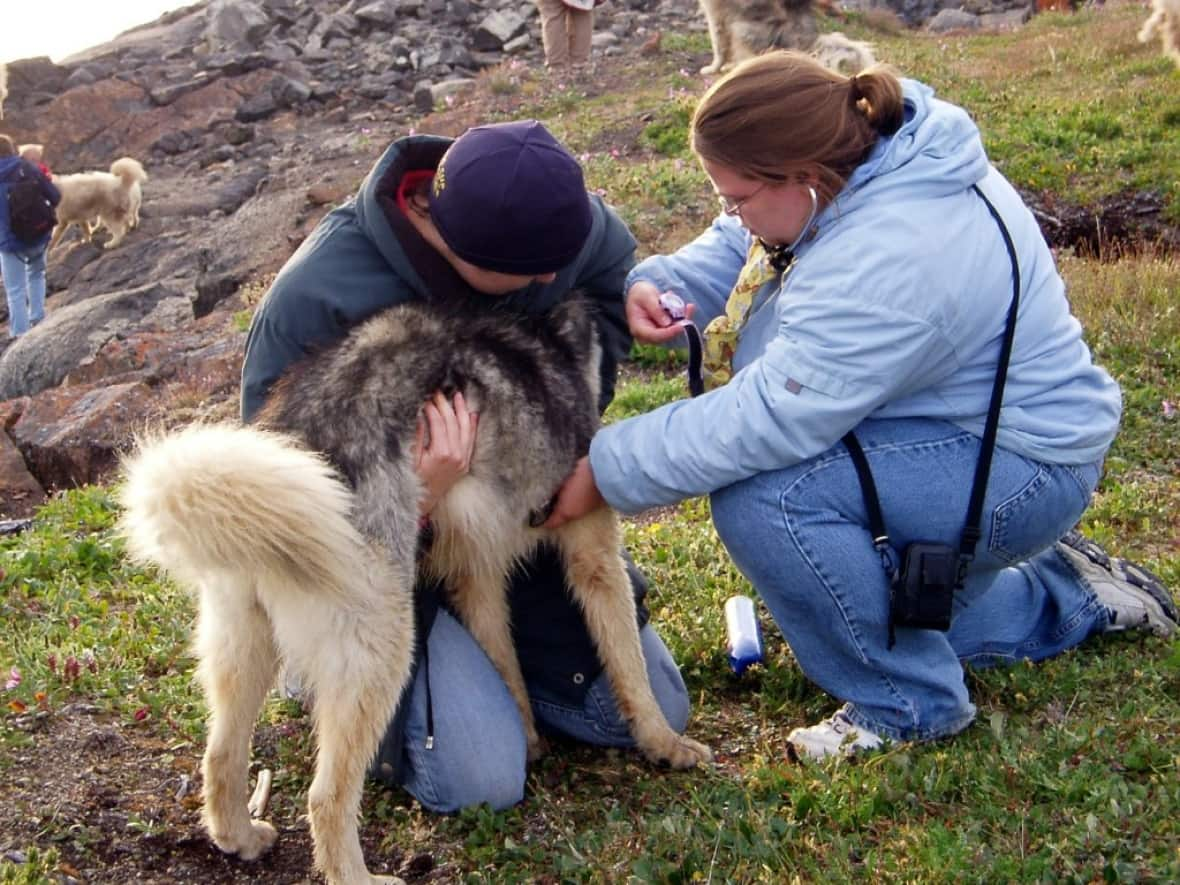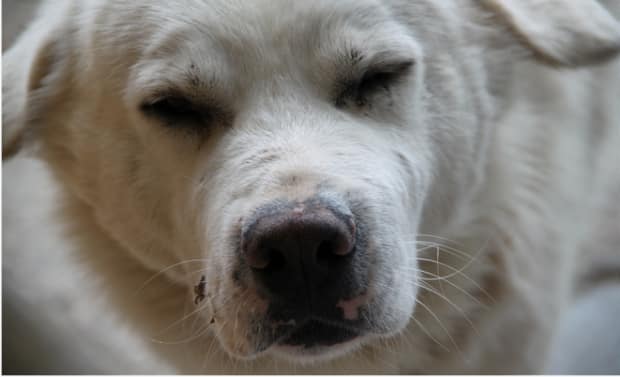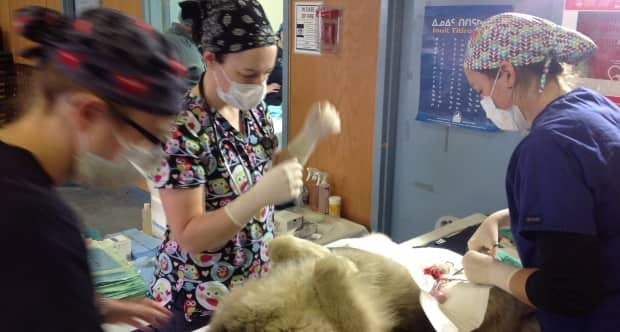Chinook Project vets to care for pets in Canada's North after 3-year hiatus

An Atlantic Veterinary College program providing free essential care for animals in remote places in the North is relaunching following a three-year hiatus.
The Chinook Project sets up temporary clinics that offer veterinary procedures such as spays and neuters, vaccinations and deworming in participating communities. The program has been running since 2006, but because of the pandemic it had to shut down in 2020.
Earlier this week, the college announced it will open its first post-pandemic clinic next month in Port Hope Simpson, a community on the southeast coast of Labrador.
"In 2020, when we had to abruptly stop, it was heartbreaking," said Dr. Marti Hopson, one of the program's co-ordinators. "The students had already started their training, the community had already started planning. And in 2021 we also started the planning process, but it just wasn't to be. So we're delighted."
Over 70 veterinary students have gone through the program, which is an opportunity to develop their skills while learning about the cultures of the communities they visit, the college says.
For the communities that wish to participate in the program, the temporary clinics provide an important service. Hopson said since the cancellations, participating communities have had issues such as dog overpopulation and the spread of infectious diseases.

"There are communities in Labrador where they have seen the numbers of roaming dogs ... expanding. And there have been increased outbreaks of diseases as well as incidents of people getting hurt from bites," she said.
"So there are a lot of communities that are looking at ways they can try to control a dog population and Chinook can only do so much. But we're very proud of the small amount that we can do."
This will be the first time the clinics will open at Port Hope Simpson, which is about a six-hour drive on an unpaved road from Goose Bay. The clinic will offer some surgeries as well as basic medical care for dogs and cats.
"Many communities ... don't have access to a veterinarian," Hopson said. "Many of them, they would have to fly their animal to somewhere. If you were in eastern Nunavut, that would mean flying your animal to Montreal or Ottawa. And if you're in Labrador, then flying to at least Goose Bay, if not to St John's.
"Obviously, we can't really help with emergencies because we're not there all the time. But there are many dogs and other animals like cats and even some rabbits or birds, that aren't receiving veterinary care."

There are about 70 animals already signed up for treatment at the clinic, which will be staffed by about eight students. Hopson said they could see over a hundred animals in a four-day period — some of them more surprising than others.
"Someone wrote to us and asked if we would see their cockatiel and trim its feet. So that's exciting. I have to remember to pack the right size nail trimmers, I suppose," she said.
"We don't see wildlife. Unfortunately, that wouldn't be part of our purview. But anything else that would be a domesticated animal, I think we'd be willing to try and see what we could do."


